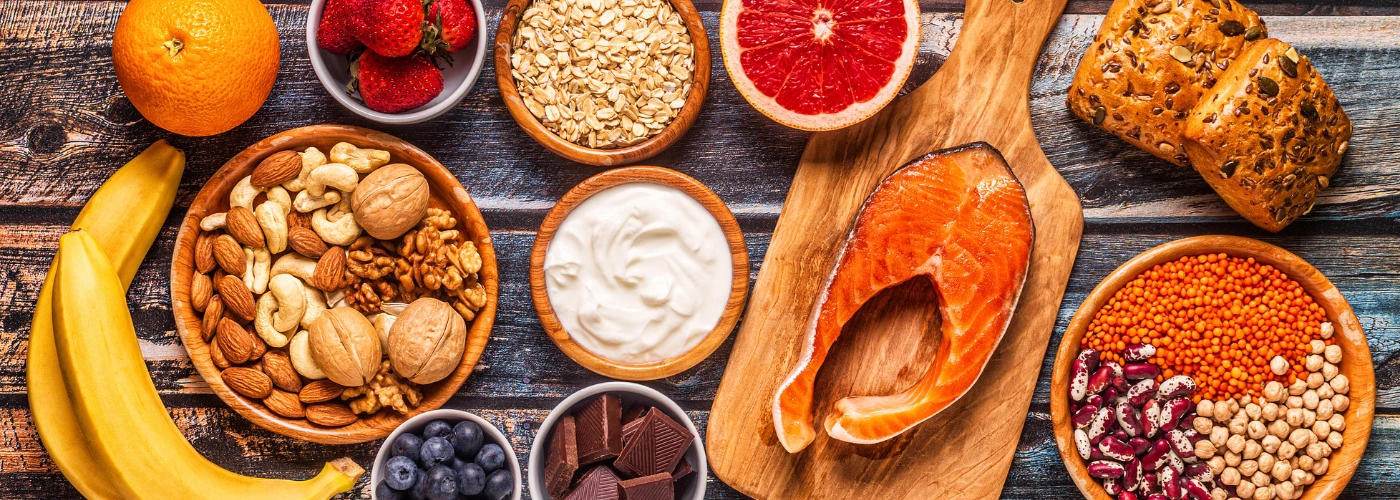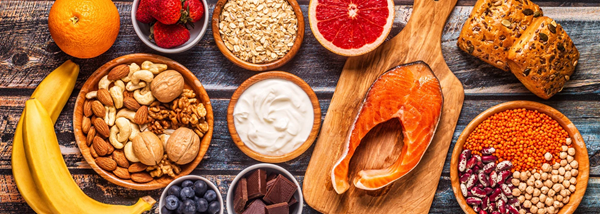Topics
What are the differences between Probiotics Vs. Prebiotics?
Probiotics and prebiotics both play crucial roles in supporting gut health, but they serve different functions.
Probiotics are live microorganisms, primarily bacteria and yeasts, that offer health benefits when consumed. These beneficial microbes help restore and maintain a balanced gut microbiome. You can find probiotics in foods like yogurt, kefir, sauerkraut, and kimchi. They work by replenishing the healthy bacteria in your digestive system, which is vital for proper digestion and immune function.
On the other hand, prebiotics are a type of fibre found in various plant-based foods that the body cannot digest. Instead of directly adding beneficial bacteria to the gut like probiotics, prebiotics serve as food for the existing good bacteria in your gut. By nourishing these microbes, prebiotics help them grow and thrive, which supports the overall health of your gut. You can find prebiotics in foods such as onions, garlic, bananas, and whole grains.
In simple terms, think of probiotics as the "good guys" entering your system, while prebiotics act as their "fuel," helping them grow and work effectively.
What Are the Benefits of Prebiotics and Probiotics?
Probiotics:
- Digestive Health: Aid in maintaining a balanced gut microbiome, which is crucial for proper digestion and nutrient absorption.
- Immune Support: Enhance the body's immune response by promoting the production of specific antibodies and stimulating immune cells.
- Mental Health: Emerging research suggests a connection between gut health and mood regulation, indicating that probiotics may play a role in mental well-being.
Prebiotics:
- Gut Health: Serve as food for beneficial bacteria, promoting their growth and activity, which is essential for a balanced gut microbiome.
- Digestive Function: Improve bowel regularity and may help alleviate constipation.
- Mineral Absorption: Enhance the absorption of minerals like calcium and magnesium, contributing to bone health.
How Can Probiotics and Prebiotics Help with Irritable Bowel Syndrome (IBS)?
Irritable Bowel Syndrome (IBS) is a common gastrointestinal disorder characterised by symptoms like abdominal pain, bloating, and altered bowel habits. Both probiotics and prebiotics have been studied for their potential benefits in managing IBS:
Probiotics:
- Probiotics can positively influence the gut microbiome by strengthening the gut barrier, suppressing harmful bacteria, and potentially impacting neurotransmitter production (Ahlawat & Singh, 2023).
Prebiotics:
- By nourishing beneficial gut bacteria, prebiotics may help restore balance in the gut microbiome, potentially alleviating IBS symptoms. (Cohen, 2024)
Dietary Considerations When Taking Prebiotics and Probiotics
Incorporating prebiotics and probiotics into your daily diet can significantly improve your gut health. A balanced diet containing both is key to supporting a healthy microbiome. Here are some dietary examples of foods rich in each:
Probiotic-Rich Foods:
- Yogurt: Contains live cultures that help promote the growth of good bacteria in the gut.
- Kefir: A fermented drink made from milk or water, rich in beneficial probiotics.
- Sauerkraut: Fermented cabbage, a tasty way to introduce probiotics into your diet.
- Kimchi: A Korean dish made from fermented vegetables, especially cabbage, providing beneficial bacteria.
- Miso: A Japanese fermented paste made from soybeans, commonly used in soups, contains probiotics.
Prebiotic-Rich Foods:
- Onions and Garlic: Both are packed with inulin, a type of prebiotic fibre that feeds healthy bacteria.
- Asparagus: Contains prebiotic fibres that help nourish beneficial gut bacteria.
- Bananas: A great source of resistant starch, which acts as a prebiotic.
- Whole Grains: Oats, barley, and other whole grains are high in fibre, which supports gut health.
- Legumes: Beans, lentils, and peas are excellent sources of prebiotics that help feed good gut bacteria.
By consuming a mix of probiotic and prebiotic-rich foods, you can support and maintain a balanced gut microbiome, which is essential for good digestion and overall health.
Book an Appointment at Pantai Hospitals
Maintaining a healthy gut is crucial for your overall well-being, and understanding the roles of probiotics and prebiotics is an important step in supporting digestive health. By incorporating the right balance of probiotics and prebiotics into your diet, you can improve digestion, boost immunity, and even enhance mental well-being.
If you are experiencing digestive issues or want to learn more about how to optimise your gut health, it is time to take action. At Pantai Hospital, our expert specialists can provide personalised guidance, tailored treatments, and professional care to help you achieve a healthier, more balanced lifestyle. Do not wait—book your appointment today and start your journey toward better gut health. Our team is here to support you every step of the way. You may also book an appointment via our website or download the MyHealth360 application from Google Play Store or Apple App Store.
Pantai Hospitals have been accredited by the Malaysian Society for Quality in Health (MSQH) for its commitment to patient safety and service quality.













